Nigeria needs more Intensive Care Units – Cole
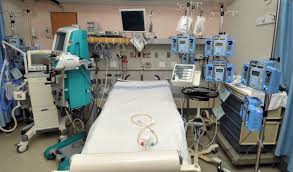 The Consultant, Intensive Care Unit, Paelon Memorial Clinic, Lagos, Dr. Sylvia Cole, has called for the creation of more intensive care units in the country to cater for patients with life-threatening conditions. Cole made the call during the inauguration of a two-bed ICU unit at the clinic.
The Consultant, Intensive Care Unit, Paelon Memorial Clinic, Lagos, Dr. Sylvia Cole, has called for the creation of more intensive care units in the country to cater for patients with life-threatening conditions. Cole made the call during the inauguration of a two-bed ICU unit at the clinic.Health insurance: FG to encourage access through loans
The Federal Government is considering the idea of making loans available to Nigerians to enable them access the health insurance scheme under the National Health Insurance Scheme programme. If the arrangement being put in place succeeds, money would no longer be a problem to accessing health care facility in the country.
Acting Executive Secretary of the NHIS, Dr. Abdulrahman Sambo, disclosed this on Wednesday in Abuja when he received the report on the Hospital Capital Improvement Project committee. The report is expected to be presented at the Federal Executive Council for ratification.
Babatunde Fashola Lagos State Gov. signs compulsorily health insurance bill for every Lagosian
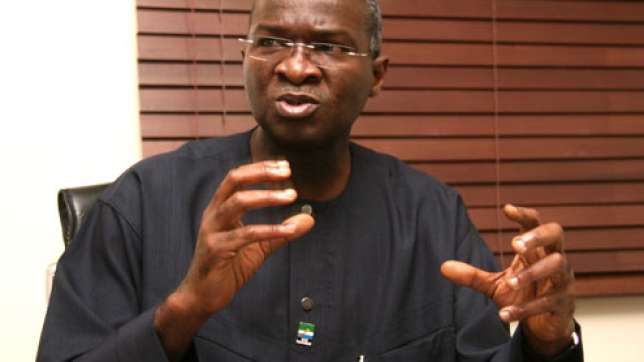 The bill is pro-poor in nature recognising that the poor and vulnerable will need to have subsidised premiums from the state government.
The bill is pro-poor in nature recognising that the poor and vulnerable will need to have subsidised premiums from the state government.
It's a new dawn for health care in Lagos state as Governor Babatunde Fashola has signed into law the Lagos State Health Management Agency Bill, which will mandate Lagosians to have compulsory health insurance. According to Business Day, the bill is pro-poor in nature recognising that the poor and vulnerable will need to have subsidised premiums from the state government.
Speaking on the bill, Fashola said: “For those who cannot afford the scheme Lagos State is not saying there is no free health anymore, but we know that there are things that are covered under the free health like malaria treatment and antenatal. For those things that are not covered by the health scheme and cannot be afforded by the less privileged, it will be paid for.”
Waiting for the promised Change in the Health Sector
 On the eve of the change of government, the All Progressives Congress (APC), through its Policy, Research & Strategy Directorate headed by Dr. Kayode Fayemi, organised a policy dialogue chaired by the Vice-President elect Prof. Yemi Osinbajo and featuring Lord Mandelson, a key player in the UK New Labour government under Tony Blair as the Keynote Speaker, and a last minute substitute for Tony Blair. The choice of Mandelson over Blair was just as well, as it made it easier to focus on the message much more than the man.
On the eve of the change of government, the All Progressives Congress (APC), through its Policy, Research & Strategy Directorate headed by Dr. Kayode Fayemi, organised a policy dialogue chaired by the Vice-President elect Prof. Yemi Osinbajo and featuring Lord Mandelson, a key player in the UK New Labour government under Tony Blair as the Keynote Speaker, and a last minute substitute for Tony Blair. The choice of Mandelson over Blair was just as well, as it made it easier to focus on the message much more than the man.
It never ceases to surprise me how little attention we pay to the words of people we have, of our own volition, invited to counsel us. It reminds me of a recent wedding reception I chaired. While delivering the traditional admonition to the newlywed couple, I glanced at them and was bemused that they were so lost in themselves that they could not have heard a word of what I said. The audience was much worse! I could have been one of Nigeria’s many "ghost workers" for all they cared. They were lost in the chatter and merriment of the moment.
President Muhammadu Buhari has honoured the memory of Nigeria’s late Ebola doctor, Stella Adadevoh.
 Dr Adadevoh died on August 19, 2015, after contracting the disease in a bid to keep index patient, Patrick Sawyerconfined to the First Consultant Hospital in Lagos.
Dr Adadevoh died on August 19, 2015, after contracting the disease in a bid to keep index patient, Patrick Sawyerconfined to the First Consultant Hospital in Lagos. Red Cross urges Nigerians to donate blood twice yearly
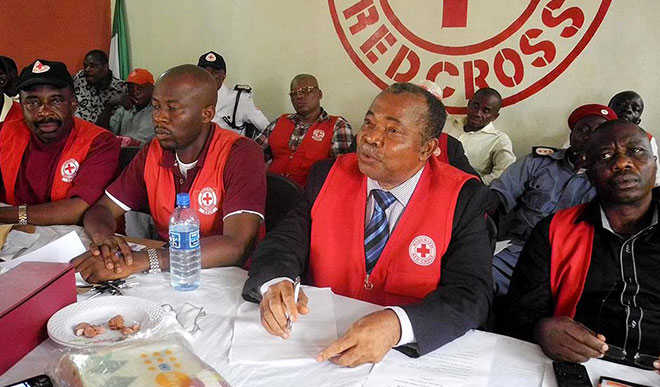 Vice chairman of the Nigeria Red Cross Society, Anambra State chapter, Prof. Peter Katchy has urged residents to imbibe the habit of donating blood twice a year in order to meet the blood requirement in the state.
Vice chairman of the Nigeria Red Cross Society, Anambra State chapter, Prof. Peter Katchy has urged residents to imbibe the habit of donating blood twice a year in order to meet the blood requirement in the state.
He made the appeal during an interactive session with newsmen in Onitsha, Anambra State following the shortage of blood to meet emergency health situations and hospitals’ needs within Anambra and the country. “One of the major Red Cross activities in Anambra State is Blood Donors Recruitment drive. Red Cross calls on the people of the state to develop the habit of engaging in voluntary blood donation as a way of life in order to enable the state and country meet the requirements of demand for safe blood transfusion services,” he said.
World Bank, PMB and Nigeria’s health sector
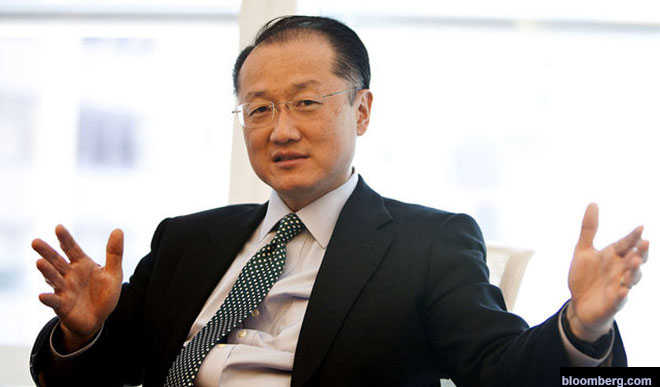 It was fun for me when I disembarked from Kenya Airways on Sunday 9th August 2015 in Nairobi because I met Mallam Kabiru Yusuf, the Publisher of Daily Trust and his family by chance. Between the airport tarmac and arrival lobby, we spent about 40 minutes and it was chats all through. For a curious reader, I and Mallam Kabiru had a story. I first met him in July 2002 at a cocktail party organized by the United States embassy in Abuja. We had a brief chat and its outcome is my starting a weekly health column in Daily Trust in October same year, thirteen years now.
It was fun for me when I disembarked from Kenya Airways on Sunday 9th August 2015 in Nairobi because I met Mallam Kabiru Yusuf, the Publisher of Daily Trust and his family by chance. Between the airport tarmac and arrival lobby, we spent about 40 minutes and it was chats all through. For a curious reader, I and Mallam Kabiru had a story. I first met him in July 2002 at a cocktail party organized by the United States embassy in Abuja. We had a brief chat and its outcome is my starting a weekly health column in Daily Trust in October same year, thirteen years now.
The rest is history. In our informal chat at the Jomo Kenyatta Airport I complained to him that the media didn’t report the recent visit of PMB to United States as it should be, as I expected to read, listen and watch robust commentary about the potential support that World Bank promised Nigeria, its implications to health sector and sustainable development, as well as a strong call by the media for prudent, transparent and efficient spending of the expected funds. And equally to match the World Bank funds with domestic counterpart financial resources.
The New MALARIA VACCINE
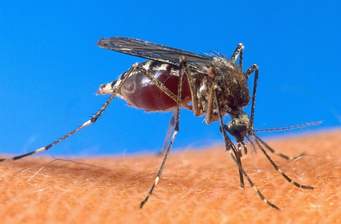 It is a rare medical feat and a welcome development
It is a rare medical feat and a welcome development
A new anti-malaria vaccine called Mosquirix was recently approved by the European drugs regulators. Projected as the solution to malaria, the mosquito-borne disease that kills one child every 30 seconds, about 3,000 children everyday worldwide and over 300,000 Nigerians every year, it is already being recommended as safe and effective to use on babies in Africa. If the trials prove to be successful, and the economics work, this will be a major breakthrough in the fight against a scourge that is without any doubts the biggest killer-disease on the continent.
The office of the United Nations Secretary-General’s Special Envoy for Malaria, Ray Chambers’, once drew attention to the fact that more than 90 per cent of the world’s malaria deaths occur in sub-Saharan Africa. That then explains why we believe that this vaccine could not have come at a better time, even though this is just the beginning of what could also be a long road before it would become readily available to the end-users.
Kidney transplants: Private hospitals can help check medical tourism
 Private hospitals are leading state-run facilities in the race to make Nigeria a hub of kidney transplants and reduce the number of patients going abroad for the procedure, a urologist, Dr Olusola Ajamu has said.
Private hospitals are leading state-run facilities in the race to make Nigeria a hub of kidney transplants and reduce the number of patients going abroad for the procedure, a urologist, Dr Olusola Ajamu has said.
He said a little government support could increase access to transplants in a matter of months. A team of local and foreign doctors completed four kidney transplants at Abuja-based Zenith Hospital last week, the second after two previous transplants in May.
“We have few government hospitals in Nigeria who have done some surgeries, like University College Hospital, Ibadan and Obafemi Awolowo University Teaching Hospital, Ife, but it is only private hospitals that are championing kidney transplants,” Ajamu told Daily Trust health desk. Ajamu was among four local experts who took part in the surgeries, and two more will hold in October.
An increasing number of private hospitals in Lagos and Abuja have since last year successfully done kidney transplants at costs lower than charges in India, where up to 5,000 Nigerians travel every month for medical care, costing Nigeria up to N78 billion annually, according to some reports. Olusola said more Nigerians with chronic kidney disease are becoming aware they need dialysis or transplant but the development of kidney transplant is at a stage where it is still capital intensive.
Urgent Public Service Announcement: Product withdrawal to save the sight of our children
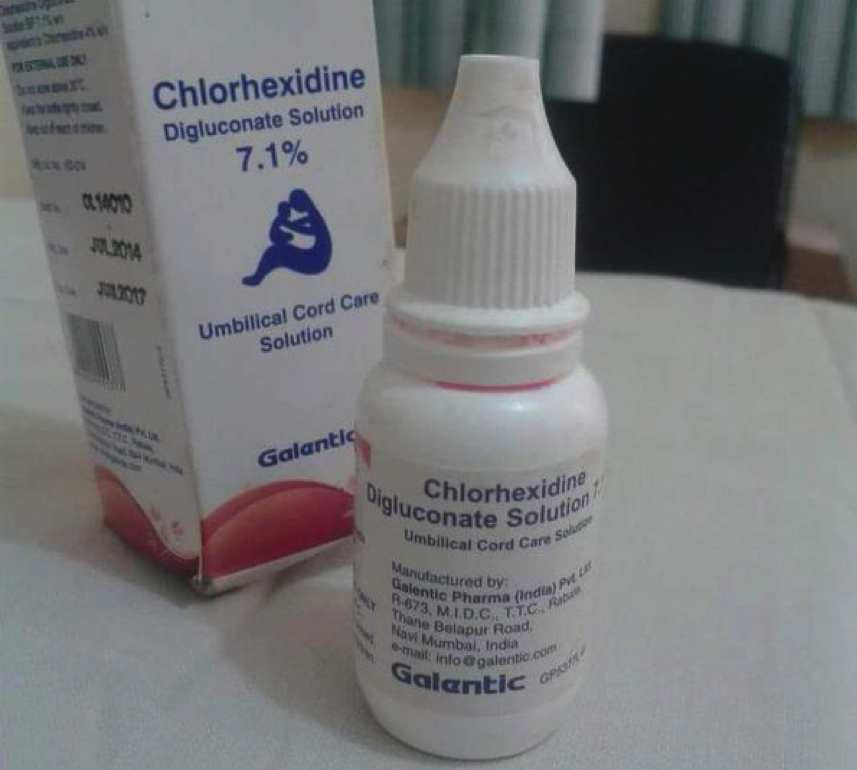
Early in September 2015, in Yobe State in Nigeria, a three-week old baby was brought to a doctor with corneal ulceration leading to immediate blindness. The doctor took a detailed history, and the only possible cause that he could find was the use of what the mother described as “eye drops”, given to her as part of a pack to support the delivery. The doctor asked the mother to go home and bring in the “eye drops”. She went home and returned with a bottle similar to the one below.
The contents of this bottle is chlorhexidine digluconate 7.1% solution packaged in a white plastic bottle apparently manufactured by Galentic Pharma (India) Pvt Ltd, as can be seen on the picture. The problem with this is that chlorhexidine digluconate 7.1% is licensed for use in Nigeria for use as an antiseptic gel to be applied to the newborn’s cord stump to prevent infection. Most people reading this will associate the container as the usual means of dispensing eye drops in Nigeria. It should never have been applied to the eyes, and therefore should never have been delivered in containers generally used for eye drops, especially when you are targeting an intervention at the poor living in mostly rural communities. It has been distributed in Yobe since March 2015.






